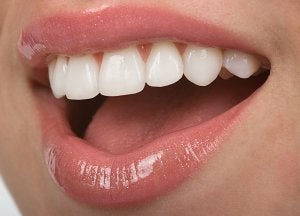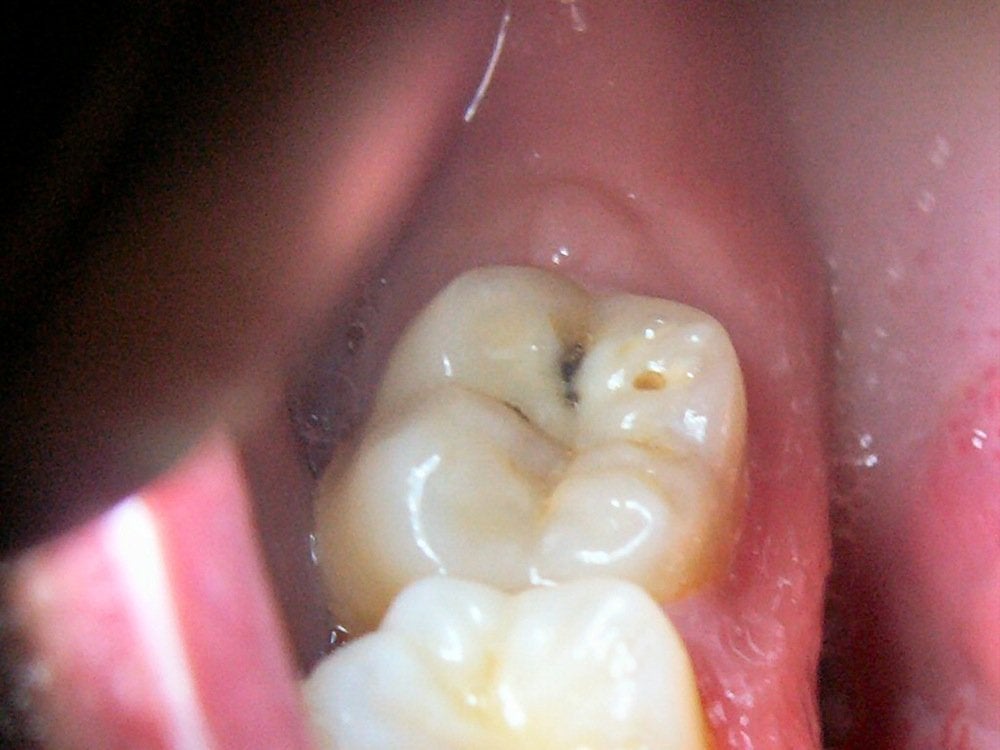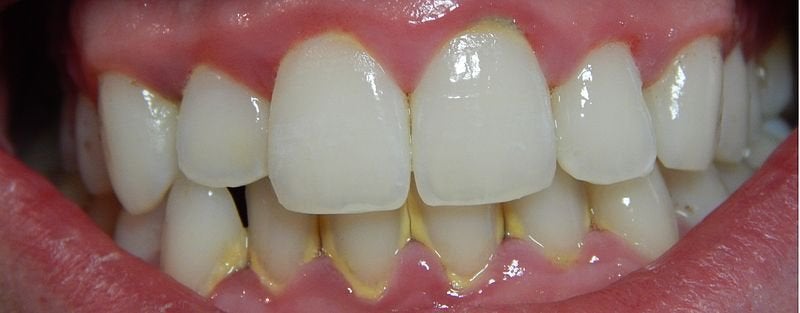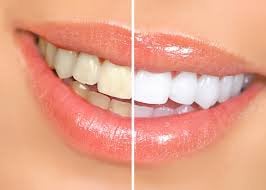-
We Want to Hear From You!
Hey we’re always excited to hear from our happy patients! If you’ve had a positive experience with Dental Heights then review us on our Google Plus page!
-
How Do Fastbraces™ Work?
Orthodontics started out with traditional braces, and then developed other techniques like Invisalign. Now there is a new way to straighten your teeth and receive the cosmetic look and level of comfort that you desire. Talk to your Schaumburg dentist and continue reading to find out about how Fastbraces™ work.
Mechanics
 After being tested for two decades, Fastbraces™ technology is now becoming widely available. The goal of this treatment is to move the crown of the tooth as well as its root into the desired place at the same time. The procedure manipulates force and flexibility in order to achieve this goal, and it does so by utilizing an elbow shaped bracket. Unlike traditional square brackets, Fastbraces™ technology combines the elbow shaped brackets with an elevated slot in order to improve the flexibility of the wire. These mechanics allow for extra tipping and torqueing so that the root is affected throughout the entire treatment , right from the beginning.
After being tested for two decades, Fastbraces™ technology is now becoming widely available. The goal of this treatment is to move the crown of the tooth as well as its root into the desired place at the same time. The procedure manipulates force and flexibility in order to achieve this goal, and it does so by utilizing an elbow shaped bracket. Unlike traditional square brackets, Fastbraces™ technology combines the elbow shaped brackets with an elevated slot in order to improve the flexibility of the wire. These mechanics allow for extra tipping and torqueing so that the root is affected throughout the entire treatment , right from the beginning. Timeframe
Fastbraces work substantially quicker than traditional orthodontic treatments, which is appealing to many individuals who are looking to straighten their teeth for a beautiful smile. This is also particularly appealing to children, who are typically very concerned with how long they will have to wear their braces. Traditional braces usually require up to two years to complete the job. This is because the process is broken down into two stages: First, the crown is moved into the desired position, and then the root takes time to catch up. Fastbraces™ technology moves both the crown and the root at the same time, which makes it possible for treatment to be completed in as little as one year, and in some cases just a few months.
Benefits
Fastbraces™ treatment is just as safe as traditional orthodontics, and its fast paced nature even comes with a few hidden benefits. Since you will be wearing your Fastbraces™ for a relatively brief period of time, you will not make as many trips to your orthodontist for checkups, which saves you time and money. Braces may also sometimes lead to tooth decay due to difficulty in practicing proper oral hygiene; this threat is reduced with Fastbraces™.
Reference: http://www.fastbraces.com/how-it-works
-
All About Dental Bonding
While there are numerous general and cosmetic dentistry treatments available such as dental implants, braces, and other types of orthodontics, dental bonding is a safe and effective way to solve many cosmetic dental issues. Talk to your Schaumburg dentist to find out if this procedure is right for you, and watch this video clip to learn all about dental bonding.
Dental bonding describes the process of reshaping your teeth using carefully prepared composite resin materials. This allows your dentist to fix any cracks, gaps, or stains in your teeth. Your teeth are first prepared with an etching solution; then a composite resin that mimics the natural color of your teeth is applied and shaped. Once the desired shape has been achieved, a curing light is used to harden the resin and bond it to your teeth, resulting in a natural and effective revitalization of your teeth done at an affordable price.
-
The Benefits of Dental Veneers

If you have cracked, chipped, or broken teeth and are looking for a cosmetic dentistry procedure that can bolster the function of your teeth as well as their appearance, talk to your Schaumburg dentist about dental veneers . Depending on your specific needs, this treatment may be ideal for your situation. Read on to learn about the benefits of dental veneers.
Aesthetics
If you would like to bolster your smile and cover up stained, broken, or cracked teeth, dental veneers can make this happen . This treatment is particularly promising because the veneers cover the teeth themselves; this is great news for people who have teeth that are particularly resistant to whitening. Once a small layer of enamel is shaved off of your teeth, your new, customized dental veneers can create a beautiful smile that you will be excited to expose.
Timeframe
Many general and cosmetic dentistry treatments take a substantial amount of time. This includes procedures like braces or other orthodontics and dental implants. However, dental veneers can be applied in a matter of weeks. Individuals who undergo orthodontic treatment may have to wait months or, in some cases, even years to get the results that they were looking for. The dental veneer treatment offers you with an immediate temporary veneer until your permanent customized veneers are created in the lab. Once your veneers are ready your dentist may make a few last second adjustments to make sure that the veneers fit perfectly and look exactly the way you want them to. From then on, the success of your veneers is simply a matter of maintenance.
Maintenance
Maintaining dental veneers is easy, because you have probably already practiced; brush your teeth twice a day with fluoride toothpaste, just like you would in any other circumstance. Floss every day and be sure to visit your dentist regularly to ensure that your mouth is reacting properly. Avoid grinding your teeth and consuming foods and beverages that will stain them.
Reference: www.aacd.com
-
Glendale Heights Dentist: Costs of Skipping a Regular Check-Up With Your Glendale Heights Dentist
 A busy lifestyle can certainly make time pass quickly. Before you realize it, you may find yourself due for another dental cleaning and exam. Skipping a professional cleaning and exam could be costly in numerous ways. We suggest scheduling your next appointment prior to leaving our Glendale Heights Dental office , to prevent missing a cleaning.
A busy lifestyle can certainly make time pass quickly. Before you realize it, you may find yourself due for another dental cleaning and exam. Skipping a professional cleaning and exam could be costly in numerous ways. We suggest scheduling your next appointment prior to leaving our Glendale Heights Dental office , to prevent missing a cleaning. Preventive Measures
Regular dental check-ups can prevent oral diseases (such as decay and periodontal disease) from developing. Routine exams allow us to find early signs of mineralized plaque (tartar), which can cause extreme damage to your teeth and gums. Other dental problems such as dry mouth, loose fillings, and impacted wisdom teeth can also be discovered and treated to prevent worsening dental problems.Time Matters
The sooner dental problems are detected, the less costly and invasive the treatment will be. At your exam, our doctor will screen for early signs of gum disease, decay and oral cancer.During early stages of gum disease, a non-surgical deep cleaning is able to treat mild to moderate conditions. However, severe cases of gum disease may require gum surgery. Cavities also benefit from early detection. Cavities can damage and infect the pulp of the tooth. Pulp infections require root canal therapy. When a cavity is left untreated for a longer period of time, the affected tooth may become severely damaged may require an extraction. Regular check ups with our Glendale Heights IL dentist prevent costly treatment such as extractions and root canals from being needed.
Please visit us more than twice a year to keep your smile stronger and brighter. We look forward to seeing you soon. Contact the Glendale Heights dentist to schedule your routine dental exam today!
-
What Dentists Can Tell About Your Health Just By Looking In Your Mouth
When dentists poke around inside your mouth while simultaneously asking you questions about how often you floss, it’s not just cavities they are looking for – and there’s a lot more than tooth decay that they can see.
The health of your mouth, particularly your gums, has major implications for your general health.
It’s probably no surprise that dentists look for signs of oral cancer when examining the mouth. But some far less obvious health conditions show up in your mouth too.
“If the eye is the window to the soul, the mouth is the window to the body,” says Dr. Stuart Froum, the president of the American Academy of Periodontists – dentists who focus on gum disease – and a practicing periodontist in Manhattan.
Medical conditions are more likely to show up in the gums and mouth than the teeth themselves, though ignoring those gum conditions and not flossing can lead to some pretty nasty teeth issues.
People ignore periodontal, or gum, disease with surprising frequency.
“I see people coming in who are meticulously dressed, women and men, who have their hair and nails done, are very interested in health – and these are patients who haven’t seen a dentist in years,” he says.
Almost 50% of adults have some form of gum disease, which is the leading cause of tooth loss and a sign of many other health issues as well.
Here are seven things that a dentist can tell from looking in your mouth.
1. You are pregnant. Small red growths of the gums and between teeth, frequently referred to as pregnancy tumors, show up in about 5% of pregnant women. They aren’t dangerous, but can be associated with increased sensitivity in the mouth, which means that some people need extra dental care while pregnant. “I diagnosed a pregnancy on a women before her obstetrician once,” says Froum.
2. Light pink pale gums can be a sign of anemia , according to Dr. Sally Cram, consumer advisor for the American Dental Association and a periodontist in Washington, D.C. When people are iron deficient, their gum can lose the normal red color and turn pink or even white.

Antidepressant usage can lead to dry mouth, which makes cavities more likely.
3. Many antidepressants cause dry mouth, which can lead to cavities. SSRIs like Prozac, Paxil, and Zoloft commonly have this side effect . While these drugs can help people manage mental health issues, some decrease the flow of saliva, which acts like a protective agent for teeth. Dentists who notice the issue or are alerted to it can recommend sprays, saliva substitutes, or other strategies for protecting teeth. Certain antihistamines, which are frequently used to treat allergies, can cause similar dry mouth issues.
4. You’re stressed out or anxious. Froum says that during medical school exams at NYU, he usually gets a steady flow of patients complaining of sensitive gums and teeth, who say “this is the worst time for this to be happening.” Unfortunately, “the worst time” is a frequent trigger for gum problems, as people are more likely to neglect oral hygiene and are likely to have an increased amount of stress hormones like cortisol in their body. Higher levels of cortisol are stronly associated with inflammation and make it harder for your body to fight infection. Those stress hormones and associated inflammation also lead to gum disease, which can cause tooth and bone loss.
5. Frequent infections called abscesses at the root of a tooth or on the gums in between teeth are a common side effect of diabetes. Dentists might be the first to diagnose diabetes in many patients, as these infections, which can be painful, frequently bring someone to a dentist’s office. Healthy people can develop abscesses, but people with diabetes have an increased risk. Someone who is having trouble managing their blood sugar is especially susceptible to these infections, and the inflammation abscesses cause can in turn make it harder to control blood sugar. That interplay can create a nasty cycle.
6. Autoimmune diseases such as lupus and Crohn’s disease can cause sore red spots in the mouth. Lichen planus , another condition that seems to be linked to immune function, frequently shows up as sores on the skin and white spots in the mouth. These spots may be tender or painful and can lead to mouth ulcers, which can be dangerous, but the spots themselves usually respond to treatment.

Onetimeuseaccount/Wikimedia Commons
Gingivitis, shown here, is usually a precursor to more serious periodontitis, which is associated with tooth loss, heart disease, diabetes, and other conditions.
7. Heart problems are associated with gum disease as well, though Froum cautions that no cause-and-effect relationship has been found. Still, people with periodontal issues are more like to suffer from heart problems. Researchers think the relationship may be related to underlying issues with chronic inflammation.
One common link with many of these conditions is particularly important to note: dealing with these issues in the mouth can make it easier to find and treat conditions that affect other parts of the body as well.
“Controlling the one condition or the other can benefit people,” whether you start with the one in the body or the way it shows up in the mouth, says Cram.
It’s a good reason to make sure to schedule an annual visit to a dentist, even if you’re lucky enough to have never had a cavity.
Read more: http://www.businessinsider.com/signs-of-disease-in-the-teeth-and-mouth-2014-8#ixzz3bdkweksp
-
Preparing for Back-to-School with Your Dentist in Glendale Heights
 Start your child’s school year off with a bright smile. See your Dentist in Glendale Heights to place your child’s oral health on track to success this school year!
Start your child’s school year off with a bright smile. See your Dentist in Glendale Heights to place your child’s oral health on track to success this school year! Back-to-school season is the perfect time to integrate good oral health habits into your child’s daily routine. Monitor your child’s daily oral hygiene habits to ensure quality care to your child’s smile. Good daily habits include brushing with a soft bristle toothbrush and flossing before and after school. Avoid any mint flavors for children, as they are too strong for a sensitive palate. Daily dental hygiene habits are more easily formed when a child enjoys the flavor of their toothpaste and floss. Your dentist in Glendale Heights, IL would be able to recommend oral care products for your child.
When packing your child’s lunch, consider healthy options. Avoid acidic juices that cause tooth enamel erosion. Instead, select drinks that are low in sugar, such as milk and water. Milk is an excellent calcium source to develop strong healthy teeth. Too much sugar in food and beverages, can cause cavities. Healthy eating habits will support a healthy smile.
Your Glendale Heights Dentist recommends a six-month check up to promote optimal dental health throughout the school year. If your child is interested in playing contact sports, you may want to your ask your dentist about a protective mouth guard. A well-fitted mouth can reduce injury to your child’s smile. Your dentist may also recommend an orthodontic screening for child’s developing smile. Early orthodontic care can guide the growth of the jaw and incoming permanent teeth.
Remember, good dental hygiene is the key to overall wellness. Practice good dental habits to succeed with your dental health this school year! Contact the Dentist in Glendale Heights and schedule your child’s next appointment.
-
Dentist in Glendale Heights- Whiten That Smile!
 We all have some things we’d like to change about ourselves. When it comes to our smiles, many of us would love to have a brighter, whiter smile. Luckily, this is something that can be accomplished with the help of the dentist Glendale Heights .
We all have some things we’d like to change about ourselves. When it comes to our smiles, many of us would love to have a brighter, whiter smile. Luckily, this is something that can be accomplished with the help of the dentist Glendale Heights . You have a couple of options when looking to whiten your smile. First, you can use teeth whitening trays. You can purchase these from your dentist Glendale Heights IL, and this is done at-home. You fill the trays with a gel, and you wear them for short periods of time. With this procedure, it can take between a couple of days to a couple of weeks to achieve the desire effect, depending on the needs of your smile. If you choose this option, you will receive trays that are customized to fit your teeth to avoid any irritation to your gums.
Another option would be an in-office whitening treatment. Your dentist in Glendale Heights would apply a bleaching agent to your teeth, and a special laser light is directed at the coated teeth to expedite the process. This is achieved in a single session at the dentist, so you will see the results much more quickly.
Both of these options are very effective in whitening your teeth. If you prefer to brighten your smile in the comfort of your home, then whitening trays might be more appealing to you. However, if you are looking for quicker results, you might want to choose to stop in to see your dentist in Glendale Heights IL and have the procedure done at the office. If you choose to undergo an in-office procedure, it is important to follow the after-care instructions that you will receive. This includes abstaining from eating or drinking anything expect water for at least an hour after the treatment. Also, you should avoid any tooth-staining foods for 24-48 hours.
If you are considering teeth whitening, you should consult your Glendale Heights dentist to explore your options. Your dentist can evaluate your smile and ensure that your teeth and gums are healthy enough to go through the bleaching process. No matter what you decide, you can take steps on your own to prevent future staining. This includes consistently following your brushing and flossing routine, using a straw to minimize contact between your teeth and the drinks you consume, and rinsing after you eat.
-
Genetics And Your Oral Health
While oral health is largely based on your oral health habits, your genetics can also play a role. Each person’s mouth is different, and genetics determine the physical makeup of your mouth, including tooth and jaw shape, the strength of your teeth, and other components of your smile. Although your smile is inherited, your Glendale Heights Dentist can help you maintain a healthy smile regardless of your mouth’s genetic makeup.
Appearance
The structure or look of your mouth can play a role in your oral health. For example, if you have large teeth with a relatively smaller jaw, you might be more susceptible to crowding. Conversely, if you have small teeth with a relatively larger jaw, you could experience diastema, or a gap in your teeth. If you experience crowding or diastema, you should schedule an appointment with your Glendale Heights IL Dentist to explore your options.Strength of Your Teeth
In addition, the strength of your teeth can impact your risk for developing cavities. If your teeth are inherently weaker than most, your Dentist Glendale Heights might recommend that you consume more dairy products and pay stricter attention to your oral health habits than others. While genetics play a role in your oral health, your habits and behaviors also make a great impact.Nutritional Preferences
Your preferences for certain foods and beverages are oftentimes inherited, which can also indirectly affect your oral health. It is important to be aware of foods and drinks that are harmful to your teeth so that you can keep your smile healthy. For example, if you are predisposed to favor sugary drinks over unsweetened tea, this can increase your chances of developing cavities if you do not resist the urge to consistently consume that type of beverage. Your Dentist Glendale Heights IL recommends sticking to water, dairy products and unsweetened tea to enhance your oral health.Although genetics affect the look of your smile, the state of your oral health is in your control.You should floss daily, brush twice a day, and visit your Glendale Heights Dentist regularly. You can prevent oral issues such as tooth decay and periodontal disease by keeping up with your oral hygiene and staying educated about oral health and advancements in dentistry. By using your knowledge of oral health to your advantage, you can keep your mouth healthy for your entire life.

-
College Students Need Dentists, Too
The couple days ago, a patient of mine came in for a regular check up — for the first time in two years. She is a college student. Being a student, it can be easy to forget about scheduling visits to see the Dentist Glendale Heights . We see this a lot with patients; they maintain regular check-ups from childhood all the way through high school, and then they go away to school and disappear for a few years. When they come back, though, they have to make up for lost time, and they face more complications than the patients who have been regularly visiting their Glendale Heights Dentist .
When my patient stopped in for an appointment, she was showing the beginnings of gum disease. There was a lot of build-up on her teeth, and her gums were beginning to recede. Had more time passed, the periodontal disease could have advanced to a more severe stage. Although it was clear that she was trying to keep up with her oral health through regular brushing and flossing, the Dentist Glendale Heights IL has the tools to target and clean the spots that are easily missed.
It is important to be proactive about making appointments to prevent gum disease and other complications such as tooth decay and cavities. You should schedule appointments at time when you know you will be home for breaks. If you stop in to see your Glendale Heights IL Dentist over winter break and then over summer break, you will be able to maintain good oral health. If this timing does not work, you could also schedule appointments during a fall break and spring break. No matter what you decide, it is much more convenient to stop in twice a year for a cleaning than it would be to need to come home for restorative treatment during midterms.
To schedule your next appointment with your Dentist in Glendale Heights IL , give our office a call.

RECENT POSTS
categories
Archives
2025
2017
2016
2015
- October (1)
- September (2)
- August (4)
- July (4)
- June (5)
- May (4)
- April (4)
- March (5)
- February (5)
- January (5)
